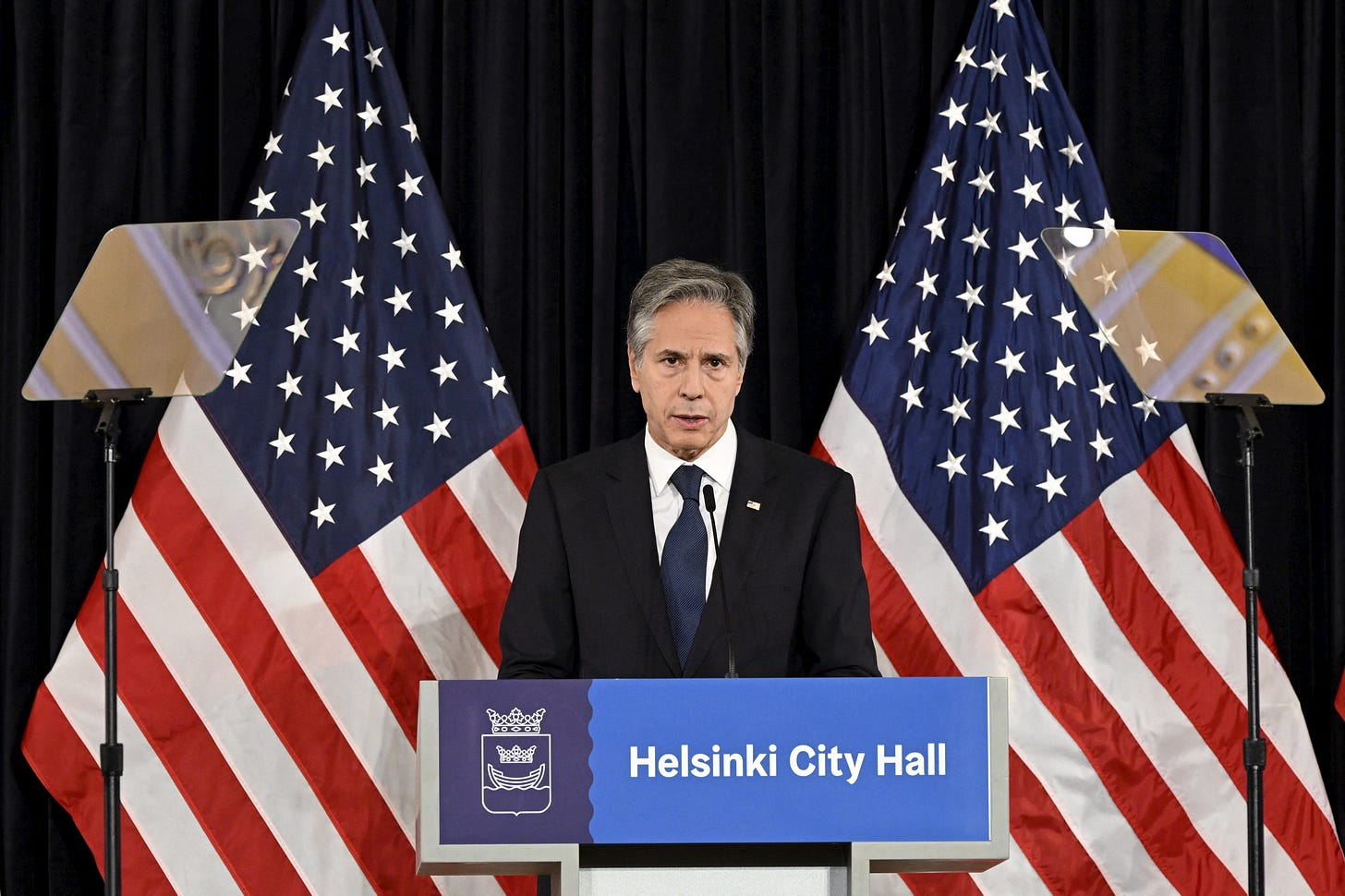
Secretary of State Antony J. Blinken in a June 2 speech in Helsinki welcomed Finland as NATO’s newest member state. A career hawk when it comes to Russia, he outdid himself in the fierceness of his commitment to the Ukraine war. Once again he was dismissive of any talk of a ceasefire—something desperately needed by an increasingly besieged Ukrainian army and citizenry.
“Now, over the coming weeks and months,” Blinken explained, “some countries will call for a ceasefire. And on the surface, that sounds sensible—attractive, even. After all, who doesn’t want warring parties to lay down their arms? Who doesn’t want the killing to stop? But a ceasefire that simply freezes current lines in place and enables Putin to consolidate control over the territory he’s seized, and then rest, re-arm, and re-attack—that is not a just and lasting peace. It’s a Potemkin peace. It would legitimize Russia’s land grab. It would reward the aggressor and punish the victim.”
Does America’s secretary of State not know—or want to know—the historical importance and success of international peace-keeping forces? Is he not aware of the work done by the diplomat Richard Holbrooke, controversial as he may have been? In 1995 he negotiated an end to the murderous ethnic violence in Bosnia and Herzegovina among Serbs, Croats, and Muslims. Their hatred for each other was as intense as the feelings now simmering among the citizenry and military in Ukraine for their Russian adversaries.
Blinken concluded his speech: “when a free people like the Ukrainians have at their backs the support of free nations around the world—nations who recognize their fates and freedom—their rights and security are inextricably bound together, the force they possess is not merely immense. It is unstoppable.”
His real message might be put more bluntly: I hate the Russians and let the blood flow.
Keep reading with a 7-day free trial
Subscribe to Seymour Hersh to keep reading this post and get 7 days of free access to the full post archives.



